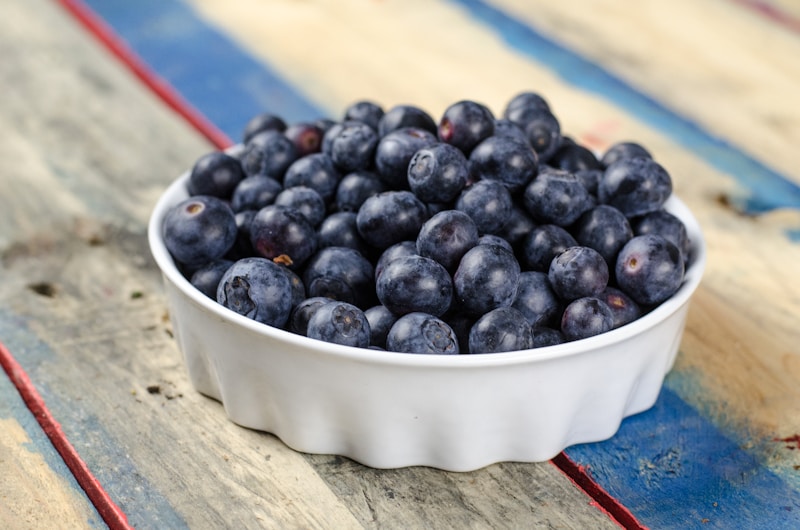Questions and Answers
Which nutrient category provides a concentrated source of energy and plays key roles in cell membrane structure and hormone production?
Fats
What is the main function of proteins in living organisms?
Support cellular building blocks
Which nutrient category is essential for the transport of nutrients, waste removal, and temperature regulation?
Water
What do vitamins primarily support in the human body?
Signup and view all the answers
Which nutrient category includes glucose and serves as a source of cellular building blocks like amino acids?
Signup and view all the answers
What is the primary function of minerals in the body?
Signup and view all the answers
What is the primary purpose of a well-balanced diet?
Signup and view all the answers
What is the role of enzymes in the digestive process?
Signup and view all the answers
What is the function of respiration in nutrient utilization?
Signup and view all the answers
How do hormones contribute to nutrient regulation?
Signup and view all the answers
Where are fats typically stored for later use within the body?
Signup and view all the answers
What is the main benefit of nutrient utilization at the cellular level?
Signup and view all the answers
Study Notes
Unraveling Life's Essential Processes: Understanding Nutrition
Nutrition, a cornerstone of life, is one of the fundamental processes that enable organisms to thrive. It refers to the science that deals with the nutrients needed by living things to maintain growth, reproduce, and generate energy. In this exploration of life processes, we'll delve into the fascinating world of nutrition and its role in keeping us healthy and vibrant.
Nutrients: The Building Blocks of Life
Living organisms require an array of substances to survive and grow. These substances, known as nutrients, can be divided into six categories:
- Carbohydrates, such as glucose, which provide energy and serve as a source of cellular building blocks like amino acids.
- Proteins, which include amino acids that serve as building blocks for cells, tissues, and organs. They also aid in the regulation of bodily functions.
- Fats, which provide a concentrated source of energy and play key roles in cell membrane structure, hormone production, and storage of energy.
- Vitamins, which are organic compounds needed in tiny amounts to support various bodily functions such as metabolism, blood clotting, and immune function.
- Minerals, which are inorganic compounds needed in small amounts to support various bodily functions including bone and tooth formation, nerve function, and fluid balance.
- Water, which is essential for the transport of nutrients, waste removal, and temperature regulation.
Nutrient Intake: Eating for Optimal Health
Healthy nutrition involves consuming a balanced diet that provides all the essential nutrients. This can be achieved through a variety of food sources, including fruits, vegetables, whole grain products, lean proteins, and low-fat dairy products.
A well-balanced diet provides the nutrients necessary for growth, maintenance, and repair of body tissues. It also supports the immune system, helps prevent chronic diseases, and aids in the regulation of metabolism.
Nutrient Absorption: From Plate to Cell
To harness the energy and nutrients from food, living organisms require an efficient digestive system. Food travels through the digestive tract, where enzymes break it down into smaller molecules that can be absorbed through the intestinal walls.
Once absorbed, nutrients travel through the bloodstream to their intended destinations, where they support growth, repair, and energy production. In some cases, nutrients are stored for later use, such as fats in adipose tissue and vitamins in the liver.
Nutrient Utilization: Making the Most of Our Diet
Nutrient utilization is the process of converting absorbed nutrients into energy or building blocks for growth and repair. At the cellular level, this process relies on complex metabolic pathways that involve the breakdown of nutrients and the synthesis of new molecules.
In addition to nutrition, other life processes such as respiration and circulation aid in the efficient utilization of nutrients. Respiration provides the energy needed for cellular functions, while circulation ensures that nutrients and waste products are transported throughout the body.
Nutrient Regulation: Balancing Act
To maintain optimal health, organisms must regulate their uptake, storage, and utilization of nutrients. This is achieved through complex feedback mechanisms that involve hormones, enzymes, and other cellular components.
For example, when blood sugar levels rise after a meal, the hormone insulin is released, which promotes the uptake of glucose by cells and the storage of excess glucose as glycogen or fat. Conversely, when blood sugar levels drop, the hormone glucagon is released, which stimulates the breakdown of glycogen and the release of stored fat to provide energy.
In conclusion, nutrition is a fundamental life process that involves the ingestion, absorption, utilization, and regulation of nutrients. Understanding these processes can help us make informed choices about our diet and lead to better health and well-being. By eating a balanced diet and engaging in regular physical activity, we can ensure that our bodies have the nutrients they need to thrive.
Studying That Suits You
Use AI to generate personalized quizzes and flashcards to suit your learning preferences.
Description
Test your knowledge on the fundamental processes of nutrition, from nutrient intake to utilization and regulation in living organisms. Explore the role of carbohydrates, proteins, fats, vitamins, minerals, and water in maintaining health and vitality.




